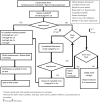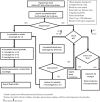Management of Dengue: An Updated Review
- PMID: 36574088
- PMCID: PMC9793358
- DOI: 10.1007/s12098-022-04394-8
Management of Dengue: An Updated Review
Abstract
Dengue is an important public health problem with a wide clinical spectrum. The World Health Organization classifies dengue into probable dengue, dengue with warning signs, and severe dengue. Severe dengue, characterized by plasma leakage, severe bleeding, or organ impairment, entails significant morbidity and mortality if not treated timely. There are no definitive curative medications for dengue; management is supportive. Judicious fluid resuscitation during the critical phase of dengue is the cornerstone of management. Crystalloids are the initial fluid of choice. Prophylactic platelet transfusion is not recommended. Organ involvement in severe dengue should be carefully looked for and managed. Secondary hemophagocytic lymphohistiocytosis is a potentially fatal complication of dengue that needs to be recognized, as specific management with steroids or intravenous immunoglobulin may improve outcomes. Several compounds with anti-dengue potential are being studied; no anti-dengue drug is available so far.
Keywords: Dengue; Management; Shock.
© 2022. The Author(s), under exclusive licence to Dr. K C Chaudhuri Foundation.
Conflict of interest statement
None.
Figures


References
-
- World Health Organization . Dengue: guidelines for diagnosis, treatment, prevention and control. New. Geneva: World Health Organization; 2009. - PubMed
-
- World Health Organization . Dengue haemorrhagic fever: diagnosis, treatment, prevention, and control. 2. Geneva: World Health Organization; 1997.
Publication types
MeSH terms
Substances
LinkOut - more resources
Full Text Sources

